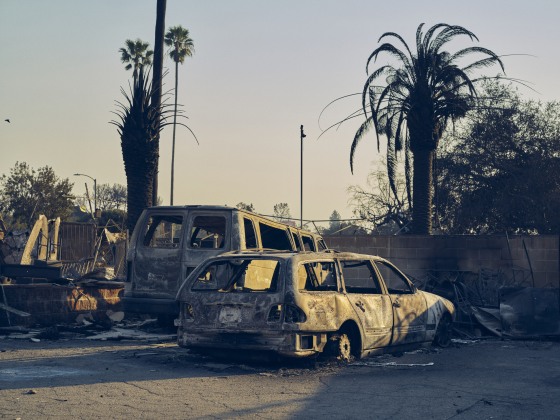ALTADENA, Calif. — Dennis “Buzz” Chatman said that, when he bought his house in Altadena in 2020, the original property title in 1950 indicated that the only nonwhite people allowed in the neighborhood were servants.
“so being able to plant my flag there meant a lot,” Chatman, a film and TV producer, said.
Now, he’s grappling with having lost not only his house, but what he says was a haven for Black families to the devastating fires in Los Angeles last week.
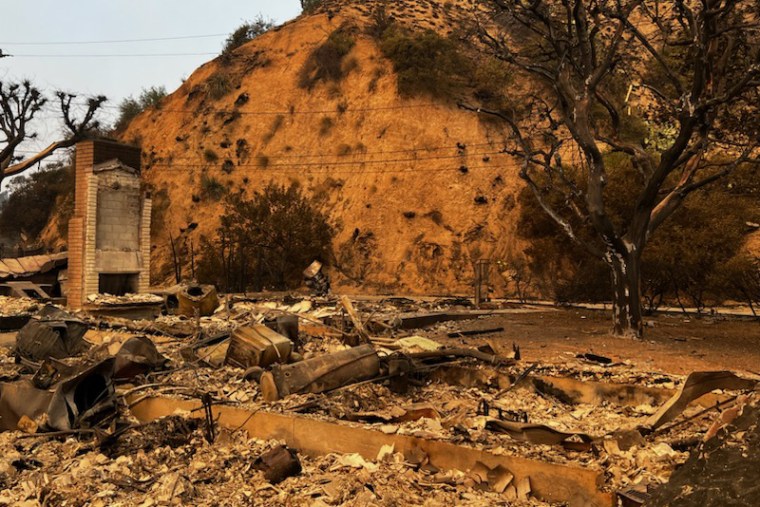
In Altadena, a diverse enclave with a flourishing art community 14 miles northeast of Los Angeles, residents impacted by the Eaton Fire are mourning a sweeping loss of history, community and culture.
The Eaton Fire has killed at least 11 residents and reduced more than 1,900 structures to ash and rubble. By Monday morning, authorities said the blaze was 33% contained. The wildfires that erupted in Los Angeles County last week are among the most destructive in California history, killed at least 24 people and forced 180,000 others to evacuate.
Altadena, an unincorporated town in the foothills of the san Gabriel Mountains, was a soulful middle-class suburb drawing diverse groups and creatives unlike anywhere else in L.A. Here, life seemed to progress more slowly and people looked out for one another.
People of color comprise more than half of Altadena’s population, with Latinos making up 27% and Black Americans 18%. Though it has diversified over the decades, the town’s population has remained steady at around 42,000.
“Altadena is a minority-majority town,” said Rafael Agustin, former chief executive officer of the Latino Film Institute. “To me, it represents California and the future of America.”
Agustin, whose home burned down in the fire, described Altadena as economically and culturally diverse, helmed by family-run businesses like Café de Leche, a Nicaraguan restaurant he frequented.
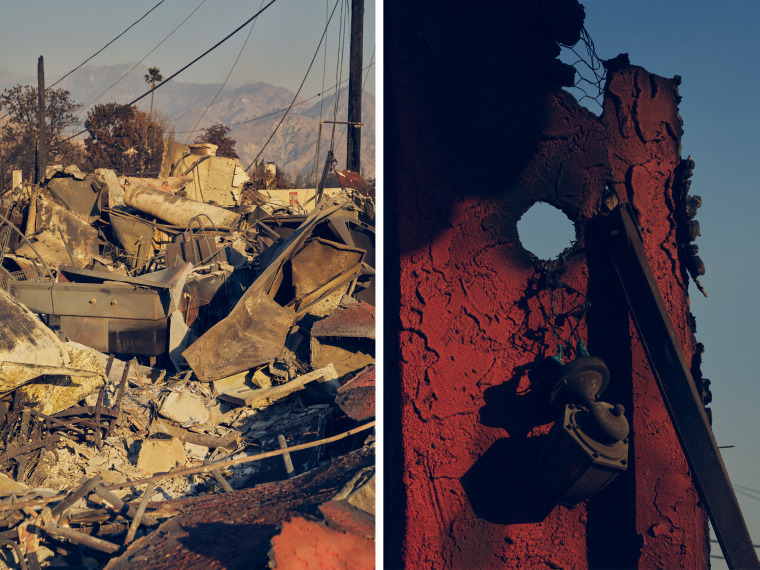
During the Civil Rights era, Altadena was one of the few areas in L.A. to be exempt from redlining, which gaveBlack Americans a rare opportunity to own a home and provided them with a refuge from discrimination elsewhere.
People bought homes and kept them for generations. Today, the Black home ownership rate in Altadena exceeds 80%, almost double the national rate. Many of these homes burned down in the fire.
Adonis Jones, 66, who lived on Canon Boulevard for nearly 20 years, evacuated his home with almost nothing.
“It’s like I lost a piece of my soul,” he said. “It was such a beautiful community. Everyone pretty much knew everyone through going to school together or living in the neighborhood. A beautiful group of people. It’s a tragedy the way this fire took us away from each other. Now the main thing is to see if we’ll be able to come back together.”
Jones’ daughter Rochele, 42, who was raised in Altadena, said she doesn’t want to lose what her parents and grandparents built. “I just don’t feel like I’m ready to see Black Altadena disappear like this,” she said.
Her father, a retired football and basketball coach in Altadena for 42 years, said on Tuesday he received two reports from people he knew that his home remained untouched, giving him hope. But a couple of hours after the last update, grave news arrived: his house was gone.
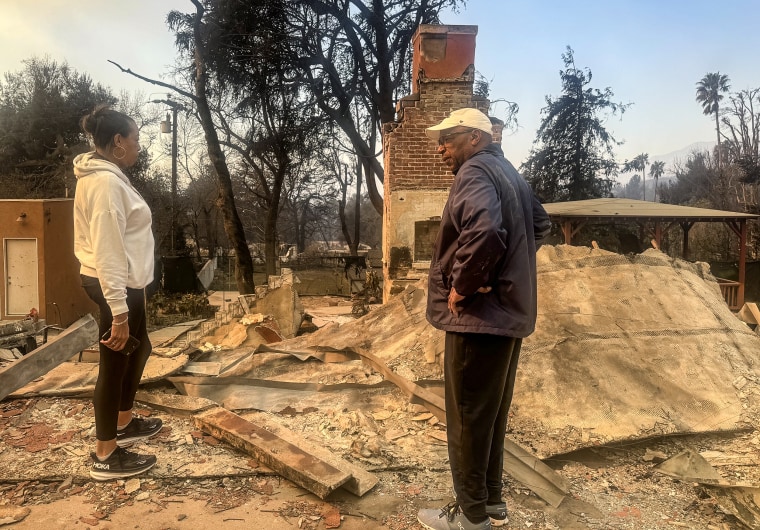
“It was like being in a raffle,” Jones said. “Are they getting ready to pull the ticket out of the hat with your number? Once I got the call, my heart just dropped down to my socks. It happened so fast.”
Keni Davis, who also pulled a bad ticket from the Eaton lottery, said he plans to stay in Altadena, where he has lived for more than 40 years. Known as “Keni Arts” around town, Davis has captured the beauty of the city through his paintings of various buildings and businesses. The devastation he has seen in his city pains him, he said.
To get to his residence on Marigold street, Davis took a little-known passage, away from barriers put up by emergency crews, and walked more than two miles. He then walked another mile to the home of his daughter, the internationally renowned artist Kenturah Davis. Her home had burned down as well, together with art pieces that according to Davis were worth “at least half the value of the home.”
“I’ve never seen anything like that,” Davis added. “I saw maybe 10 houses standing out of the maybe 100 I walked past.
The Eaton Fire also destroyed beloved religious institutions, including the Pasadena Jewish Temple and the Altadena Community Church, both more than 80 years old, and Masjid Al Taqwa, a mosque that has served Altadena’s Muslim community for three decades.
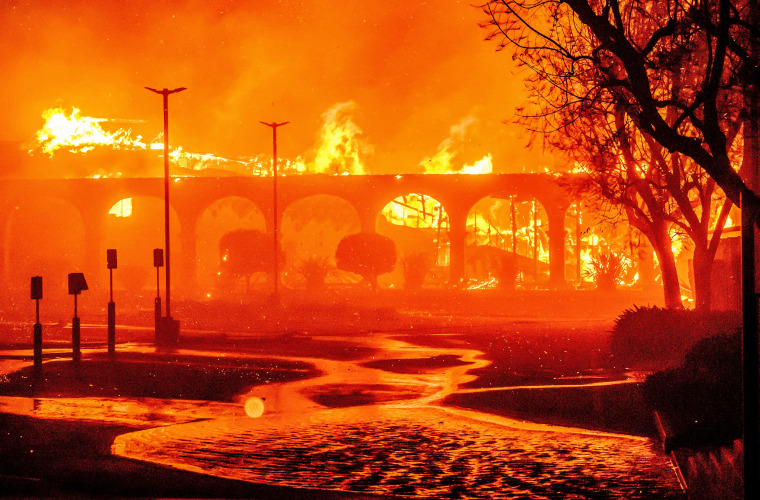
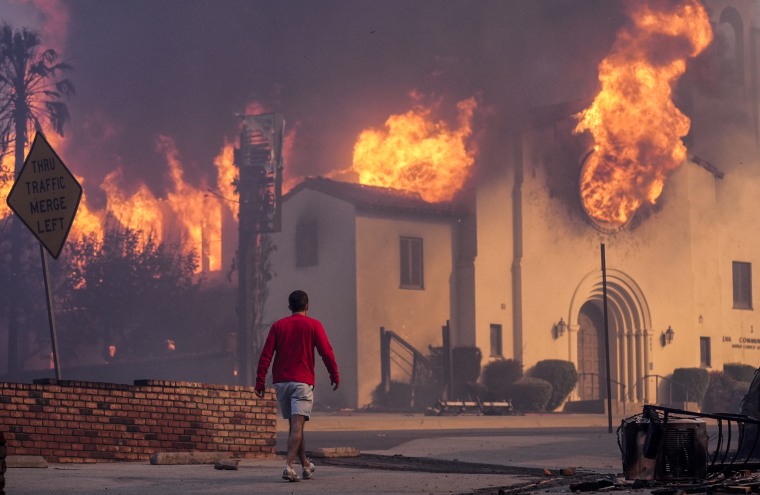
Muhammad Akhtar, the owner of a new halal grocery and butcher shop in the neighborhood, said he used to pray at Masjid Al Taqwa on Fridays, and its existence reflected the diversity and inclusiveness of Altadena residents.
The support and compassion people have for one another is what makes Altadena most special, Akhtar said. The day after the fire ripped through the town, he said, many local customers called to check in on his business, EZ Halal Meat and Market, which was outside of the burn zone.
“Prayers to all,” Akhtar said. “All we can do is rebuild.”
Loss of arts, nature and community
Those living in Altadena are as proud of their quirky arts scene and cultural landmarks as they are of its diverse and welcoming nature. The Zorthian Ranch, an art junkyard established in 1946, was a commune and gathering place for artists and musicians, including celebrities like Andy Warhol and Bob Dylan. Most of the ranch, and the artworks inside, are now destroyed.
Nearly a dozen cultural institutions were lost in the fire, including the Bunny Museum, which houses a collection of more than 46,000 rabbit-themed objects, from stuffed toys to antiques and cookie jars. Opened in 1998, the museum held the Guinness World Record for largest bunny collection.
“A lot of people care about land, a lot of people have backyard animals,” said Christina Conte, who spent the past five years creating an urban homestead in Altadena. she recalled sightings of an alpaca and pigs.
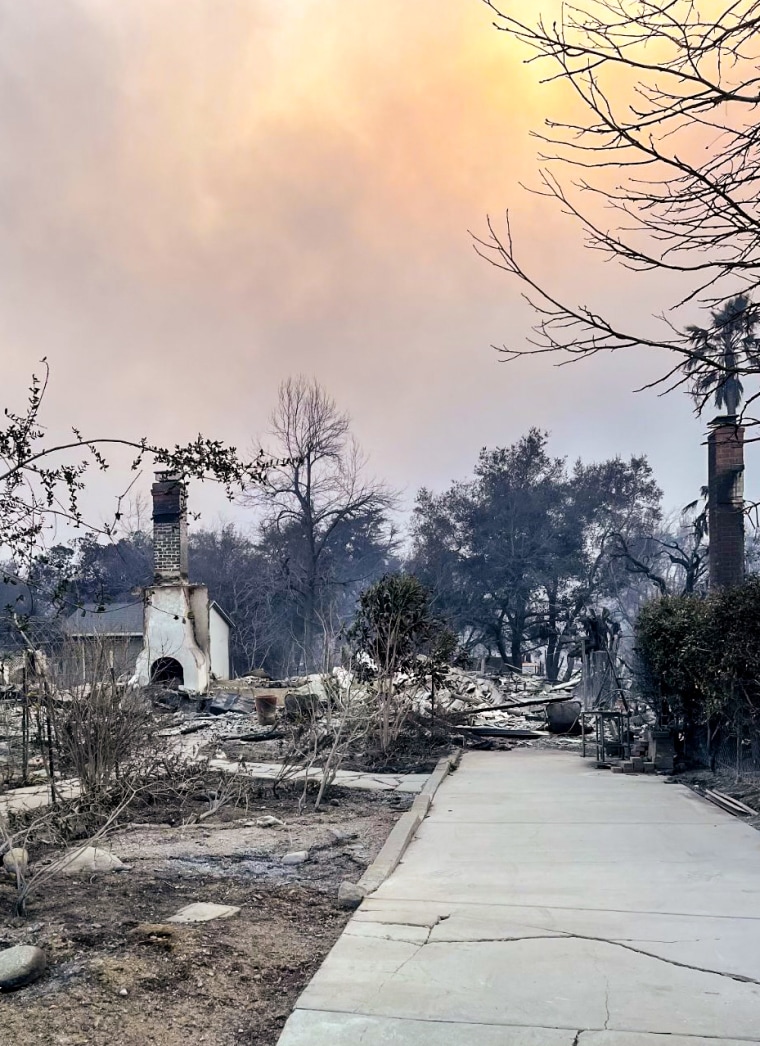
In the sprawling oasis of her backyard, she cultivated native plants, grew produce and raised a flock of chickens. she held workshops on how to make medicinal herbs and brew kombucha; she homeschooled children in the neighborhood. she felt a kindred connection with other Altadenians.
Now, only a charred chimney remains of the only home she’s ever owned. Conte managed to drive away with her three young children and her dog just moments before the blaze reached her block.
“It was my safe space,” she said. “I saved up my whole life for it, and now we literally have nothing.”
Jane Parrott, a psychotherapist who has lived in Altadena for five years, described the mountain town as a “country city” replete with canyons, swimming holes and quaint local businesses.
“Once you go there,” she said, “you just want to stay.”
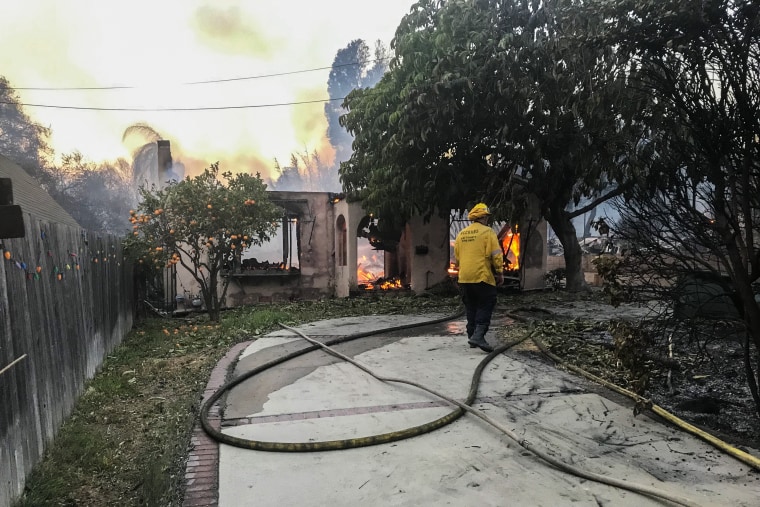
Parrott said it’s been difficult to process all that’s been lost, including an art studio she built in her garage. “It’s hard to imagine that my life is completely erased,” she said.
“It was our dream to live here,” said visual artist Courtney Lotfipour-Tindall, who began renting in the community with her musician partner last October. “You’re close to the city, but you can also go to the mountains and go hiking.”
Within two months of settling in, Lotfipour-Tindall and her partner had gotten to know 75% of residents on their street, she said. They felt at home in a community of creatives. A friendly stranger once told Lotfipour-Tindall that Altadena is “a town on its way to nowhere,” a metaphor she found apt.
“I’ve lost every single piece of artwork I’ve ever made,” Lotfipour-Tindall said. “We’re not rich people, but what we lost were mementos of our life.”
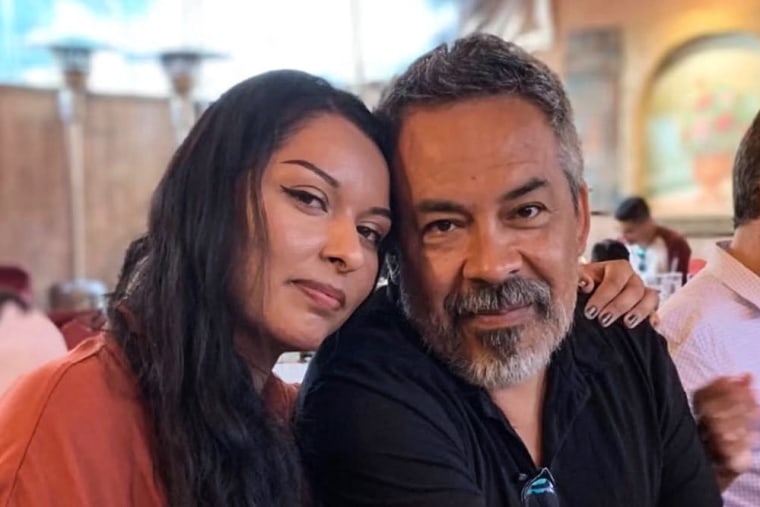
salomón Huerta, 59, also an artist, was at his studio when his wife noticed the fires hit his block and was forced to evacuate. He later found out via video his house was gone. He said he lost his old archives. “The art that I was collecting from other artists — that cannot be replaced,” he said. Huerta, who is from Tijuana and has been in the U.s. since he was a small child, had been raising money to do a ceremony in Oaxaca after he and his wife got married last year.
Altadena residents worried about the cost to start over
Joelle Fortune-simmons’ family lives in the home her husband’s family has owned for 47 years. The dwelling was so important to her mother-in-law that Fortune-simmons had to plead with her to leave it as the fire grew closer.
“she kept saying, ‘I’m gonna save my house,’” Fortune-simmons said. The family attempted to stave off the flames with garden hoses, but they had to flee. soon enough, their home was gone. she is resolved, however, to rebuild in Altadena when the time comes.
But some displaced residents might not get a chance to start over. With the fires wiping out a significant share of L.A.’s housing supply, rental prices in the city are already spiking — a common trend following natural disasters.
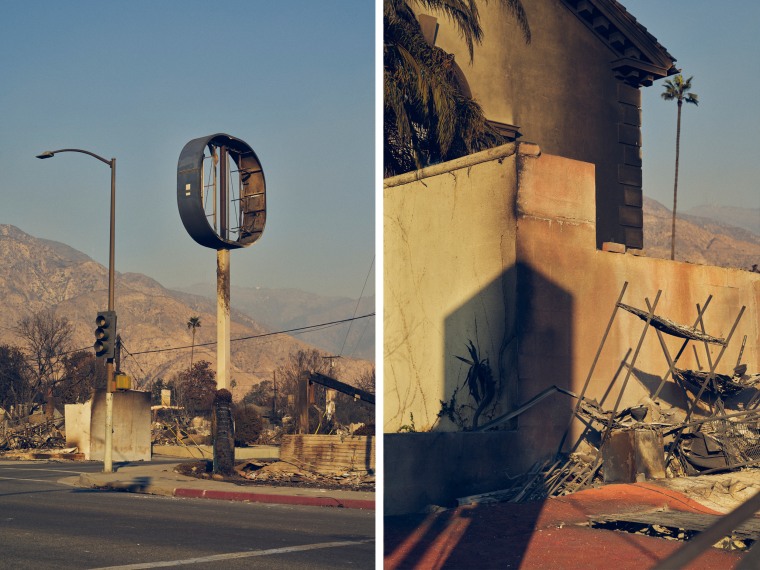
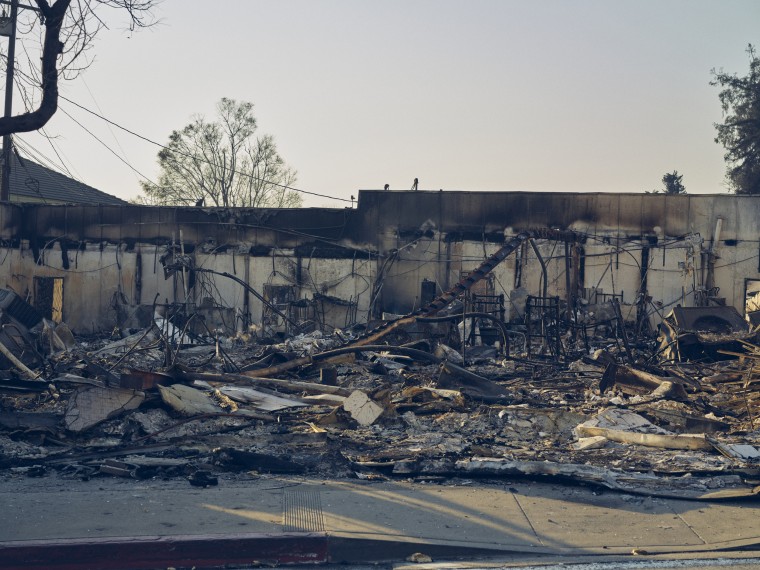
“Right now the fear that we all have as residents and homeowners is that private equity is going to come in and recreate this town into a for-profit rental property disaster that no one wants,” said Rafael Agustin, who’s been advocating for a mortgage moratorium.
Lotfipour-Tindall said a broker informed her that in nearby Pasadena, where she works and where her son attends school, only around 30 homes in her budget are available for rent. she said she’d love to rebuild her life in Altadena, but a competitive real estate market can put a tight squeeze on low-income families like hers. Even before the fire, she said, it took her a long time to find an affordable home in the neighborhood.
“We’re not sure where our place is,” she said.
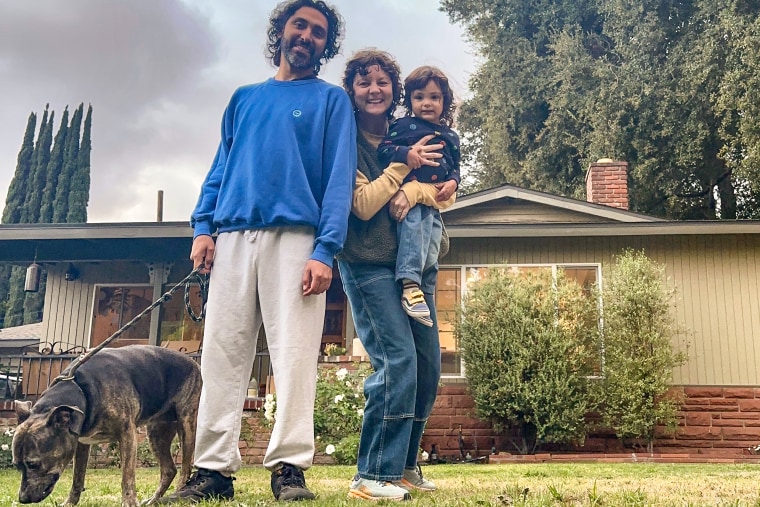
A community meeting was held over the weekend, and one of the primary topics was the future of the city and how important it is that current residents not abandon the town they worked hard to nurture.
“One of the big concerns among all of us who have been in Altadena forever is that developers don’t come in and start throwing up condos all over the place,” Keni Davis said. “It is primarily a residential neighborhood area, and people are neighbors who get to know each other, walk down the street and say hello to each other. And that’s what we want to preserve — that beautiful Black community.”
